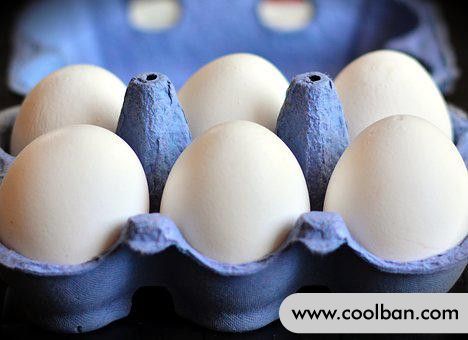Dare to eat "sterile eggs" raw?
Eggs are one of the common foods in our daily life. They not only have high nutritional value, but also taste very good.
In recent years, with the popularity of Japanese cuisine in China, there is an egg that has attracted the attention of many people, and it is the "sterile egg".
In the slogan of the merchant, sterile eggs claim to be free of salmonella, have no egg smell, can be eaten raw, and even be more nutritious. Is the truth really like this?

Reveal the secret! Are sterile eggs really sterile?
Before explaining the origin of sterile eggs, let's first understand, where do the bacteria in eggs come from?
There are many kinds of bacteria in eggs. The common pathogen is Salmonella, which is a common food-borne pathogen. This bacteria may be found in the meat and milk we eat every day.
Salmonella generally has two ways to enter eggs: one is maternal infection, that is, it enters the body from the hen's diet and infects the yolk and egg white; the other is from feces and soil into the egg, because the egg is not completely sealed, it is a porous structure, External bacteria can enter the egg by contact.

The so-called sterile eggs generally refer to eggs that have been sterilized by pasteurization or ozone sterilization, and then have been specially packaged and transported. During the production process of sterile eggs, the number of microorganisms will be strictly controlled from chicken feed, chicken seedlings, water sources to the breeding environment, and random inspections will be carried out many times during this period, so as to avoid the eggs from being infected by Salmonella to the greatest extent.
Are sterile eggs really sterile? the answer is negative. Although eggs can be sterilized by means such as pasteurization and ozone sterilization, the current production environment for eggs cannot implement a strict aseptic environment. Therefore, it can be said that the bacteria contained in sterile eggs are very small, but not Complete sterility cannot be guaranteed.
Are sterile eggs better than regular eggs?
The popularity of sterile eggs in the consumer market is inseparable from the vigorous promotion of businesses. In recent years, people have paid more and more attention to green and healthy diets, and it is easier to pay for sterile eggs.
Some friends may say that even if sterile eggs are not completely sterile, their taste and color are better than ordinary eggs.
In fact, the "no egg smell" advertised by many sterile eggs has nothing to do with sterile eggs, but is mainly related to the preparation of feed and the breed of chickens.
If more rapeseed oil, choline chloride and fish meal are added to the chicken's feed, the chickens that eat these feeds will produce more fishy eggs.

As for the color of the egg yolk, it is also related to the chicken's feed. If more color components such as lutein and beta-carotene are added to the feed, the chickens that eat this feed will produce eggs with darker yolks.
Finally, let’s talk about the nutritional value. Whether it is sterile eggs or ordinary eggs, they are rich in high-quality protein, amino acids and vitamins. This has nothing to do with whether the eggs are sterile or not.
How to eat eggs more healthy?
Consumers' pursuit of sterile eggs is nothing more than the pursuit of a healthier diet. Which is healthier to eat raw, sterile eggs than to eat ordinary eggs that are cooked?
Although sterile eggs are less sterile, they are not completely free of bacteria. For some people with poor digestion and pregnant women, young and old, eating raw eggs can easily cause bacterial infection, abdominal pain and diarrhea. Although ordinary eggs contain more Salmonella, this bacteria has a characteristic, that is, it is not afraid of heat and not cold.
Salmonella is resistant to low temperatures and can survive 3-4 months in the refrigerator. But at the same time Salmonella is not heat-resistant and will die when the temperature inside the egg reaches about 71°C. Therefore, if it is an ordinary egg, it should be fully heated and cooked before eating, so as to ensure food safety.

In addition, about 91% of the protein in boiled eggs can be absorbed by the human body , while raw eggs contain protease inhibitors, so the content of protein absorbed by the human body is reduced to about 55%; raw eggs also contain protease inhibitors. Contains avidin, which inhibits the body's absorption of biotin.
In general, raw, sterile eggs are not as good as cooked eggs in terms of nutrient absorption. Is there no advantage to sterile eggs?
Sterile eggs produced by regular manufacturers have less microbial content. If there is a need and preference for raw eggs, it is recommended to buy sterile eggs. In addition, sterile eggs generally come with a traceability code, so consumers can buy them with confidence. Eat with confidence.
Another point to note is that sterile eggs are generally marked with a "best before date". If this period is exceeded, it is recommended to heat them before eating.

